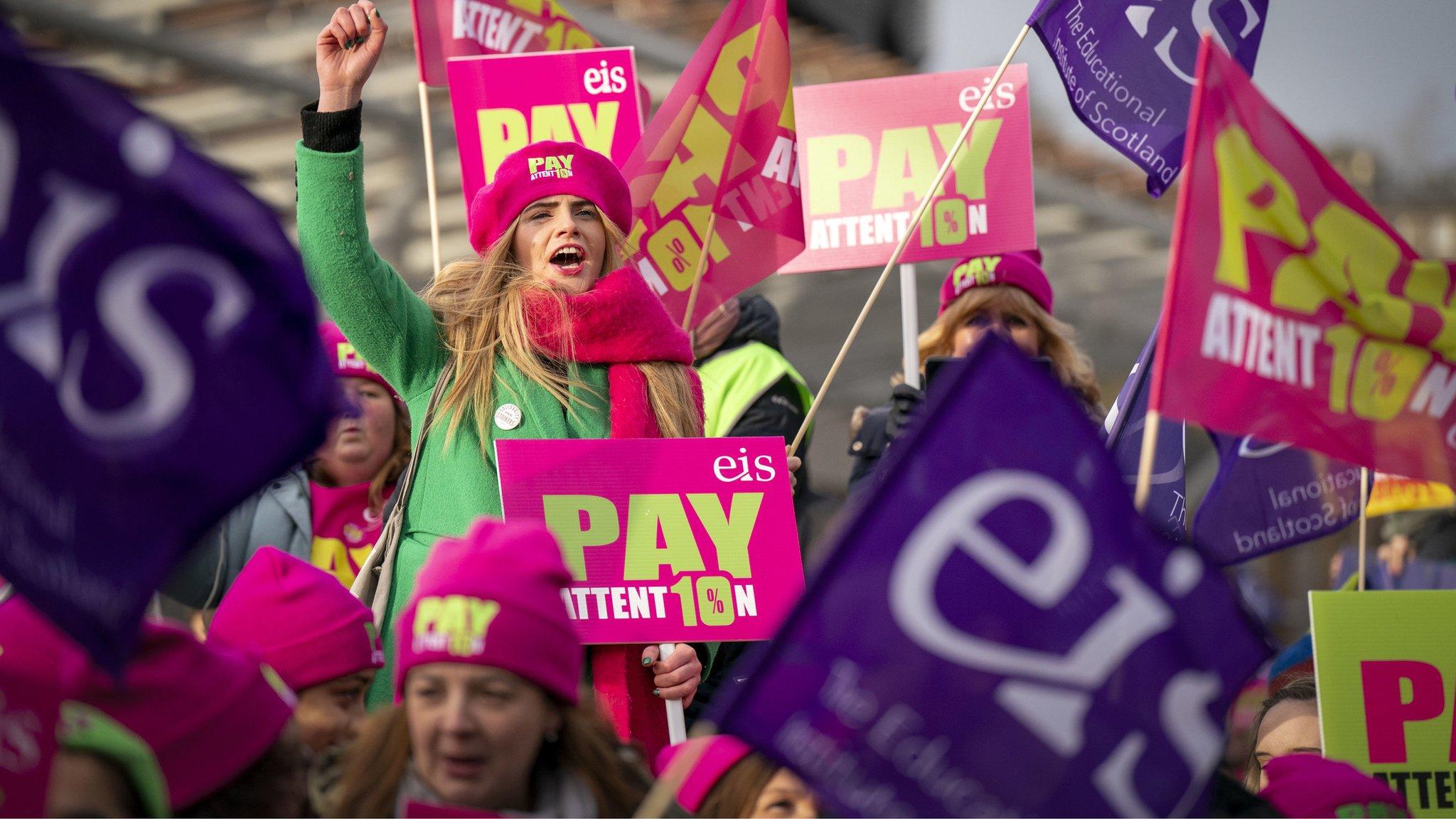Prelims rescheduled as Scottish secondary teachers strike
- Published
- comments
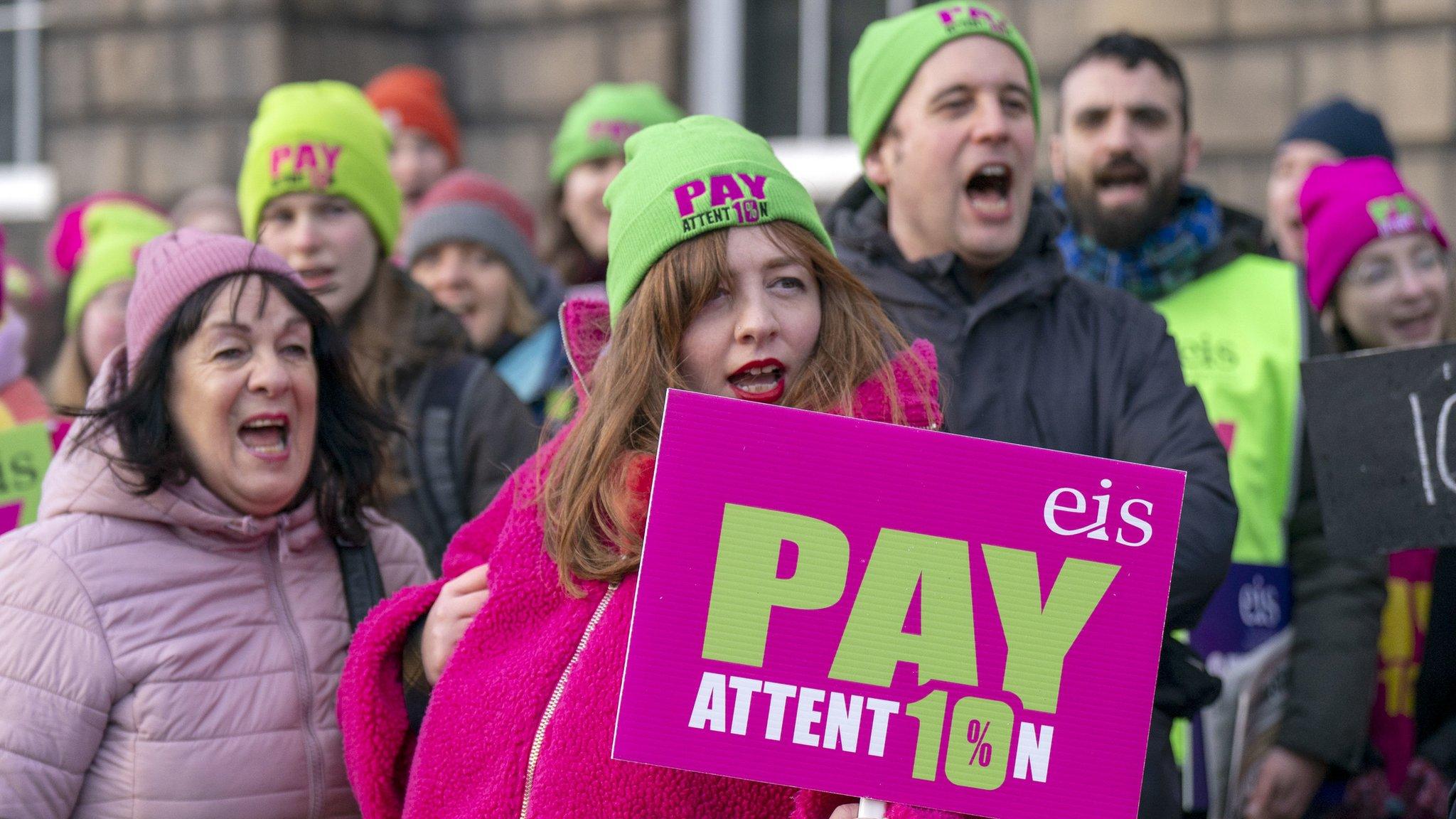
EIS members took part in a demonstration outside Bute House in Edinburgh
Preliminary exams have had to be rescheduled for some Scottish pupils as secondary teachers go on strike in an ongoing pay dispute.
The walkout follows the closure of almost all primary schools on Tuesday.
Education Secretary Shirley-Anne Somerville told MSPs on Tuesday that she would leave "no stone unturned" to bring about a quick resolution to the strikes.
But she admitted that there was still "some distance" between the two sides.
The strikes involve members of the Educational Institute of Scotland (EIS), NASUWT, Scottish Secondary Teachers' Association (SSTA) and the Association of Headteachers and Deputes (AHDS) unions.
They have rejected a 5% pay increase, arguing for 10%.
However, the Scottish government and councils have said that is unaffordable.
The latest offer includes rises of up to 6.85% for the lowest-paid staff.
Edinburgh S5 pupil Idun Curran's maths prelim was postponed from today due to the secondary school strikes.

Idun Curran's maths prelim was postponed from today
She told BBC Scotland that the teachers' strike had made her prelims more stressful and drawn out, but she supported the reasons for it.
"I think it's important that they get paid enough because either we lose a day now or we lose good teachers for the rest of our lives," she said.
"It's important that they have the right to protest for what they want and what they need. Otherwise, our education won't be at a high enough level with teachers that want to be there and are happy to be there."
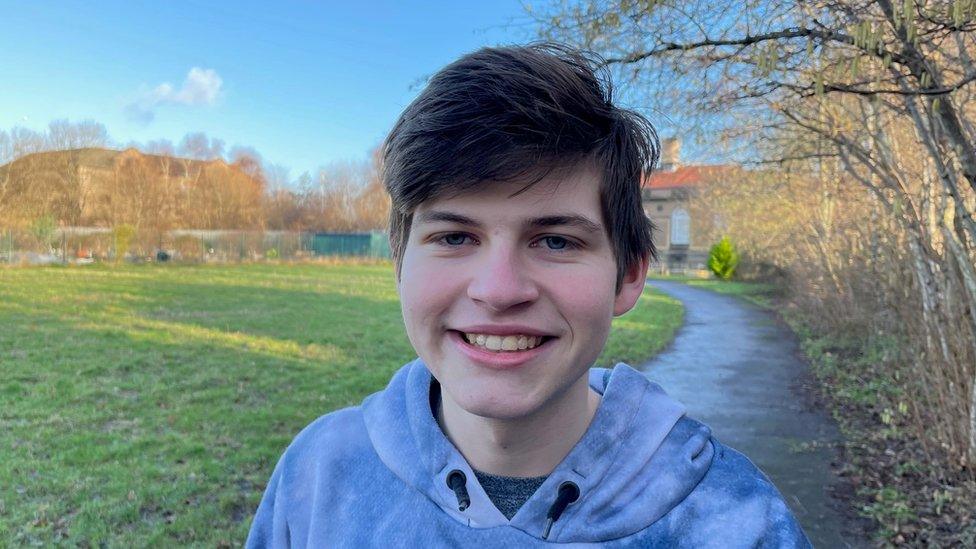
Tommy Hurrell said it was a stressful time for pupils
Tommy Hurrell, an S6 pupil, said the disruptions were stressful but pupils were given adequate resources and technology to revise for their exams during the strikes.
"I think people do understand the importance of teachers being off for strikes like these," he added.
Craig Howison, a teacher at Broughton High School in Edinburgh, said the profession is struggling to attract new teachers.
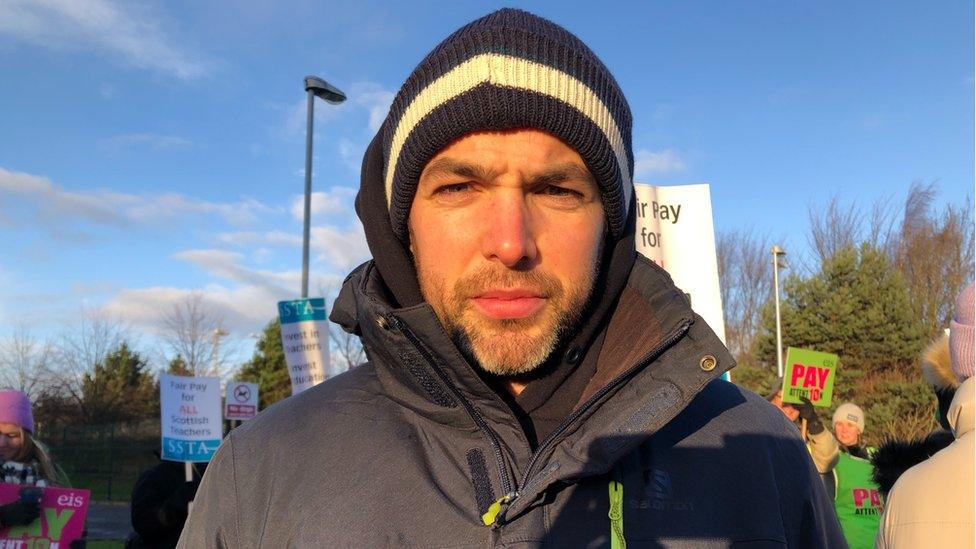
Craig Howison on the picket line
"I've only been a teacher here for 11 years and even I've noticed the reduction in the standards of our working conditions and our pay in that time," he said.
Pamela Tosh, who also teaches at Broughton, blamed the cost of living crisis for worsening the issues.
"It affects the teachers the same way it affects everybody else," she said.
"We're no different, we're just trying to get a fair pay deal like other people in other unions are as well."
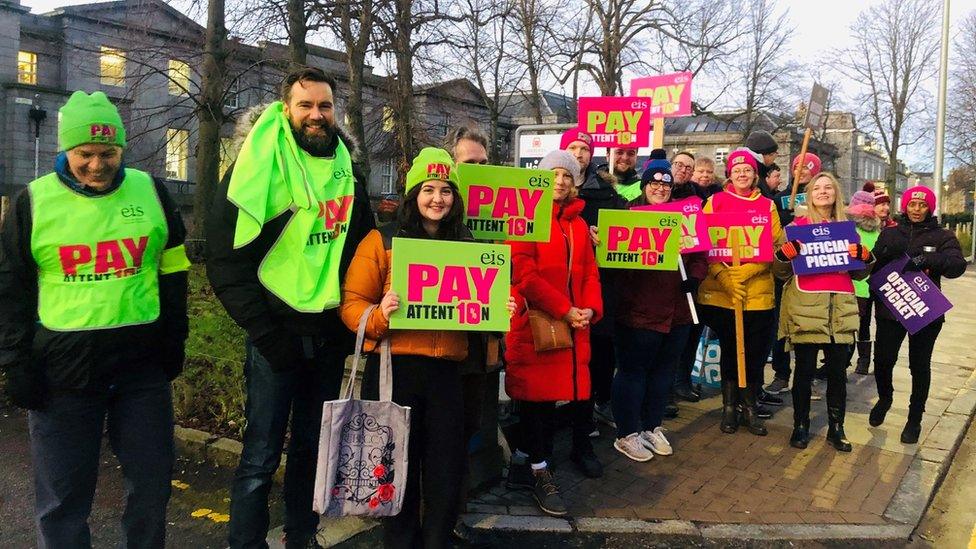
Teachers on the picket line at Harlaw Academy in Aberdeen
Recent negotiations have been described as positive and the unions are hoping a new offer will be made soon.
However, teachers plan to strike on a further 16 days, beginning next week.
The consecutive days of action - split across every council in the country - will take place throughout January and February.
Teachers in two local authorities will strike on each of the 16 days.
SSTA general secretary Seamus Searson joined secondary school teachers on the picket line in Edinburgh on Wednesday.
When asked if no new offer from the government meant that next week's strikes would go ahead, he said: "Yes - and more strikes would be added."
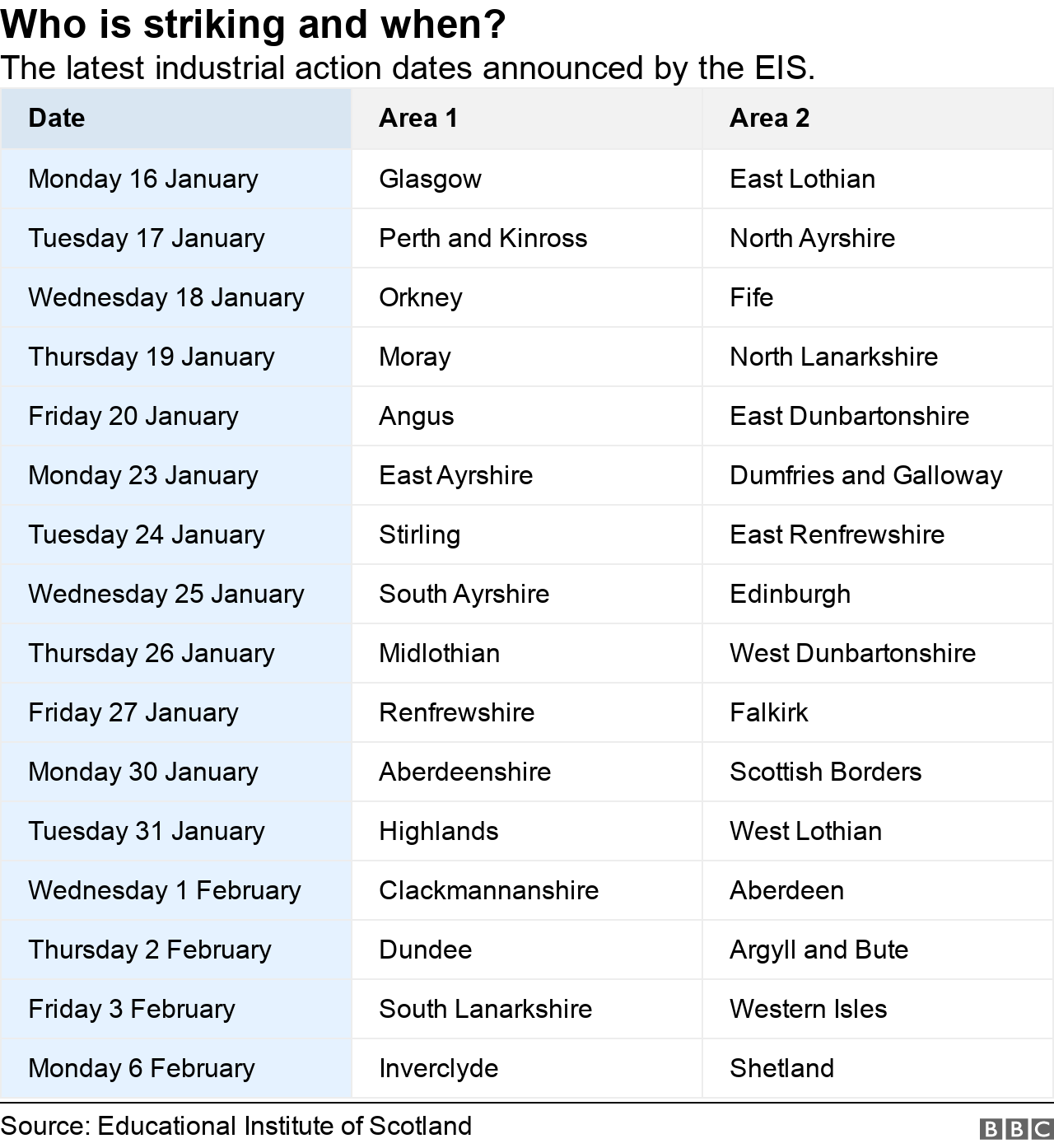
Some pupils were due to sit preliminary exams on Wednesday. They have now been postponed while revision schedules have also been disrupted.
Speaking in the Scottish Parliament on Tuesday, Ms Somerville said: "No-one wants to see strike action in our schools."
Last-ditch talks between unions and Scottish government officials held on Monday failed to prevent the strike action.
Conservative MSP Stephen Kerr claimed pupils were being "denied" access to vital exams and accused the government of a "staggering" lack of urgency.
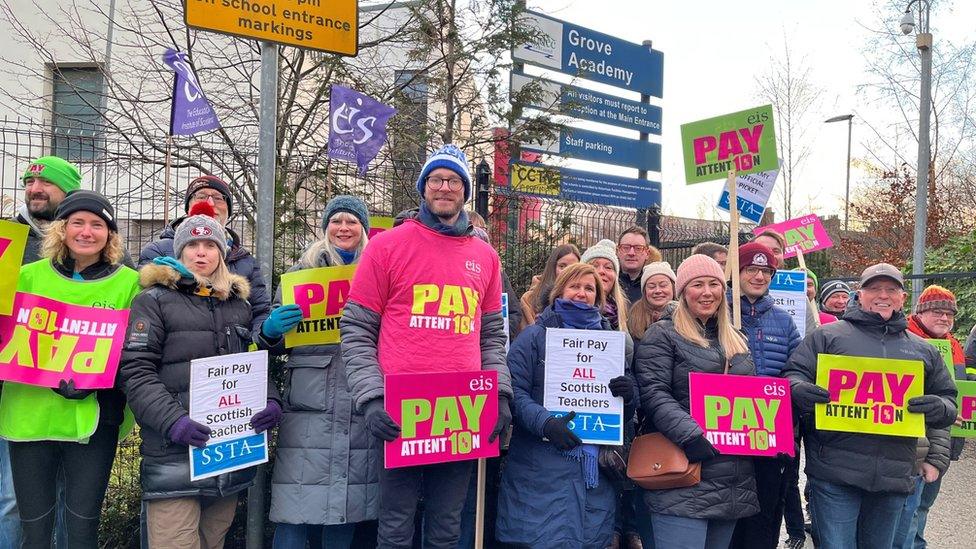
Teachers on strike outside Dundee's Grove Academy
However, referring to "anti-trade union" legislation at Westminster, Ms Somerville said: "I will take no lectures from Mr Kerr or any other Conservative member of this parliament, saying that we should be doing more to actually settle disputes."
The Lib Dems' Willie Rennie asked if there would be a new offer for teachers, saying: "The education secretary does seem to be very chilled out and relaxed."
Ms Somerville said both sides in the dispute would have to compromise in order to reach a resolution, adding: "We will, of course, leave no stone unturned to try and do that as quickly as possible."
She previously told BBC Scotland the union pay demands were "simply unaffordable".
'Slight progress'
Andrea Bradley, the general secretary of the EIS, said primary school teachers on the picket lines had received "strong support" parents on Tuesday.
She said there had been "slight progress" in discussions over the past week but the unions were still waiting for an improved pay offer from the Scottish government and local government body Cosla.
"The reality is that only a substantially improved offer can end this dispute - and it is down to the Scottish government and Cosla to deliver that improved pay offer to teachers," she added.
On Tuesday, Mike Corbett, national Scotland official of NASUWT, said there was "quite a distance" between the offer and what teachers are looking for.
Mr Corbett said that historically teacher pay had been getting "worse and worse" since 2010 and that was reflected in the recruitment and retention figures.


Solving industrial disputes amicably nearly always means both sides compromising. So what scope is there for reaching a settlement on teachers' pay?
The gulf between the two sides is wide: a 10% pay claim and an offer worth between 5% and 6.85% for most.
Unions are hopeful a new pay offer will be made later this week.
The question is how the unions may respond.
If the new offer is a significant improvement on the current one, they may call off next week's strikes as a token of goodwill and ask their members to vote on whether to accept it.
But if the new offer is disappointing and dismissed quickly, it could actually inflame the dispute.

The industrial action follows the biggest Scottish teachers' strike in decades in November.
Most state-school teachers in England and Wales were given a 5% pay rise in 2022. In Northern Ireland many teachers have been offered 3.2% for 2021/22 and 2022/23.
But unions argue that inflation above 10% means these increases amount to pay cuts.
Teaching unions in England and Wales are balloting members over pay.
And teachers from five unions in Northern Ireland are continuing to take action short of a strike - affecting meeting attendance and administrative tasks.

Are you taking part in the strikes? Are you a parent who is affected by the industrial action? Email: haveyoursay@bbc.co.uk, external.
Please include a contact number if you are willing to speak to a BBC journalist. You can also get in touch in the following ways:
WhatsApp: +44 7756 165803, external
Tweet: @BBC_HaveYourSay, external
Or fill out the form below
Please read our terms & conditions and privacy policy
If you are reading this page and can't see the form you can email us at HaveYourSay@bbc.co.uk, external. Please include your name, age and location with any submission.
- Published10 January 2023
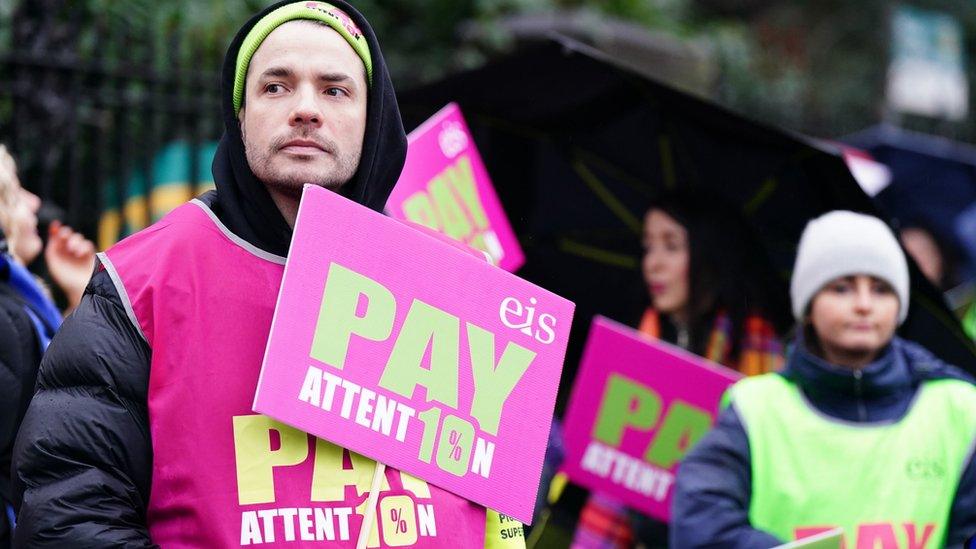
- Published9 January 2023
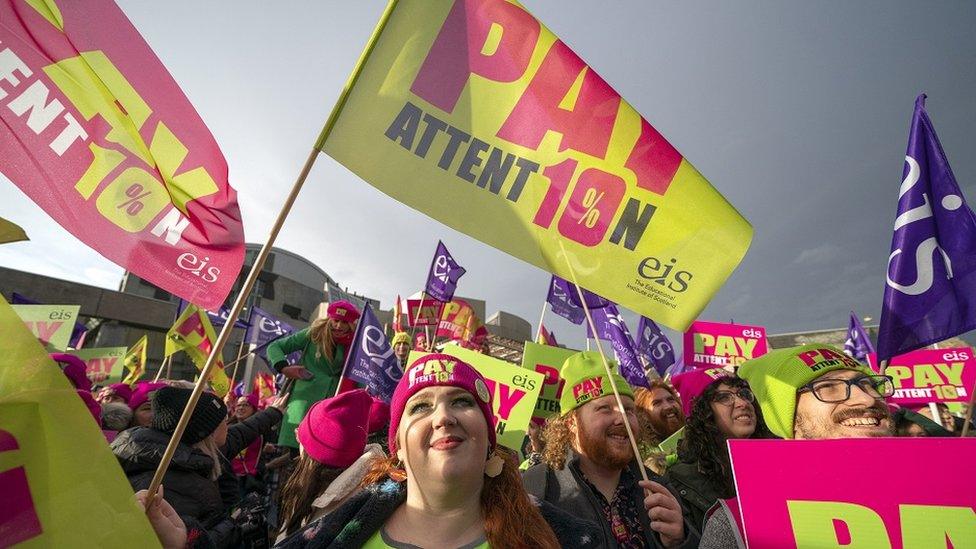
- Published6 January 2023
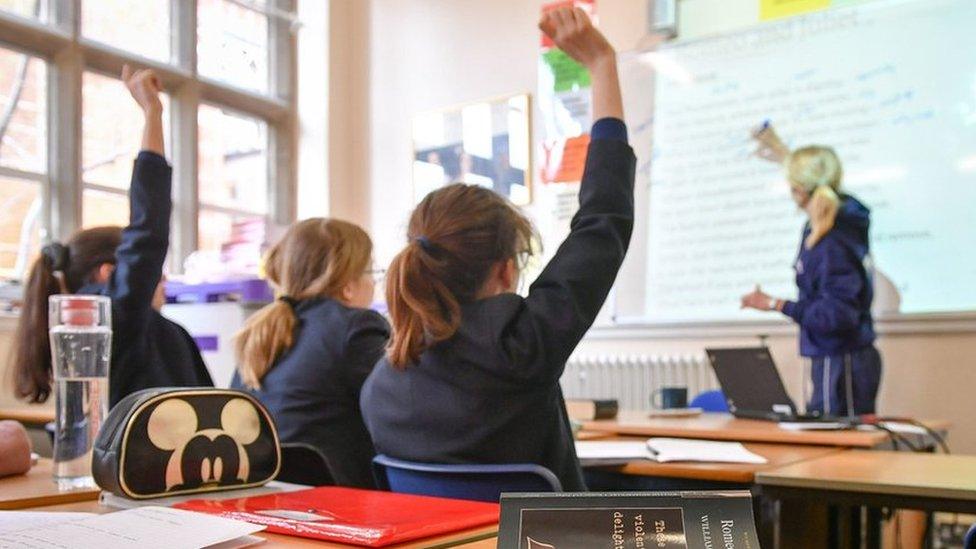
- Published25 November 2022
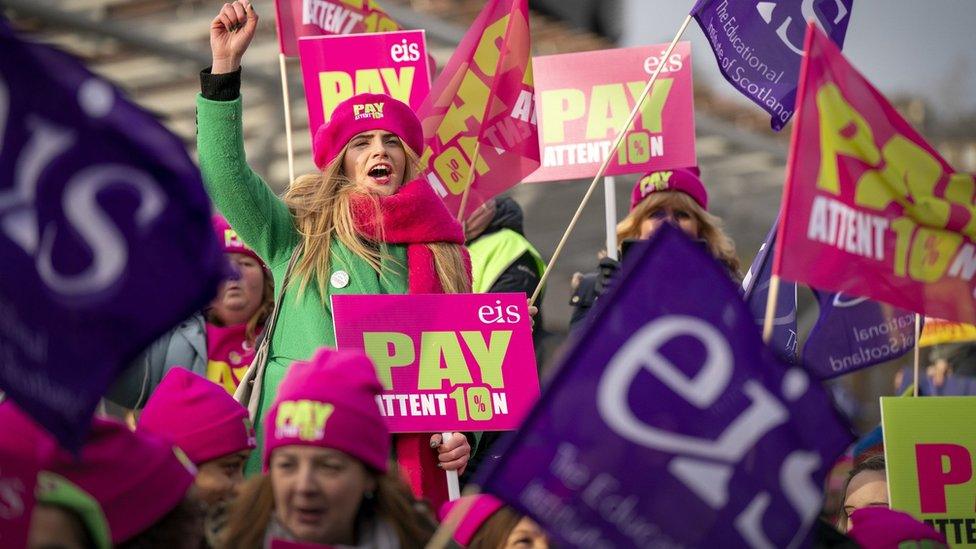
- Published24 November 2022
